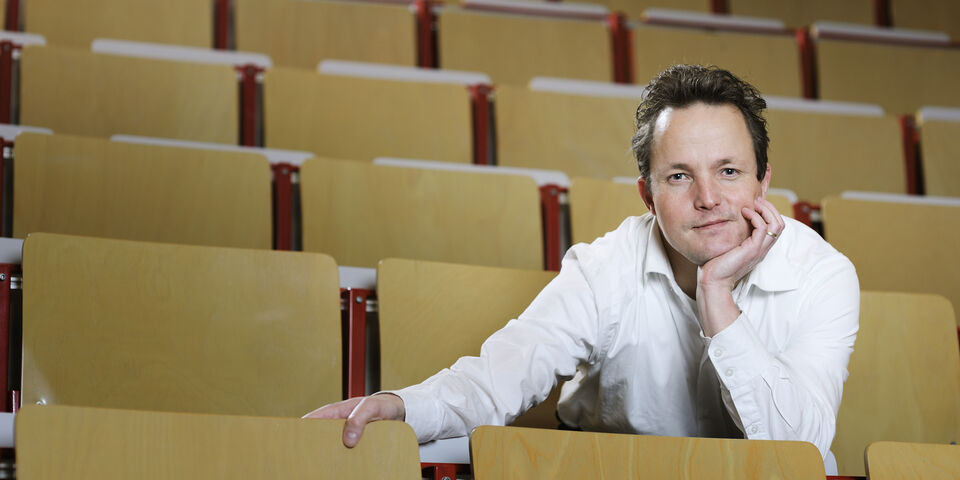Are lectures outdated?
His students chat, eat, drink, and surf the web on their smartphones during lectures; Nijmegen professor Jan Derksen is fed up. He no longer wants to act as a school teacher, and believes university education has become too childish. Last week he started a heated discussion by arguing in favor of online studying: no more mandatory lectures. Instead, students should pursue their own interests on their laptops. But where does the useful discussion between lecturer and students go with distance education?
“There’s absolutely nothing wrong with a good lecture”, says Perry den Brok, professor of Didactics at the Eindhoven School of Education, and a regular lecturer. “I beg to differ with Jan Derksen’s claim he’s up against yawning, inattentive students. It’s your job as a teacher to make sure your lectures are current, of course. The world around us is ever-changing, and we have many new technologies at our disposal. Don’t treat students to a monotonous 45-minute narrative, but make sure there’s interaction between you and the lecture theater.”
“TU/e is modernizing more and more in that respect, by using response systems or ‘clickers’ for example. Knowing students’ answers to questions provides the lecturer with a way to communicate interactively, even with a large audience, and assess the group. And there’s new software popping up all the time. Take ‘Scorative’, a program that allows students to participate in quizzes or a lecturer’s ‘interactive’ via their laptop or phone. Smartphones at lectures aren’t necessarily a bad thing.”
“Lectures are a great way to transfer knowledge, and a chance for students to ask questions and enter into discussions. However, note that they should be part of a complete program. Eindhoven knows a design-oriented approach, whereas Maastricht has opted from problem-oriented education. Both models have incorporated lectures as a fully accepted part of the curriculum, complementing other teaching methods. Research has shown lectures contribute to the educational yield. And if a former student is asked what they remember most about their studies, a common response is: those lectures by so-and-so. I’m still amazed at how he managed to captivate me and those other 499 students.”
“Putting lectures online can still be a wonderful addition to any program, mind you. Sick students, or students taking multiple courses at the same time and can’t be everywhere at once will benefit from that. New media offer newfound freedom. I don’t believe actual lectures could ever be replaced by online ones, though. There would be a lack of communicative possibilities, verbal as well as nonverbal. Besides, it’s quite naïve to think students would sit through an entire lecture on their laptops. If you’re not passionate or clear enough, you’ll be gone at the click of a mouse. It requires new didactic skills, which we do try to teach our teachers-in-training. Soon, ESoE and the Department of Mathematics and Computer Science will introduce a new course option: ICT and Communication. Not only will it provide an overview of teaching methods, it will also tell teachers-in-training what is required of them as messengers. It’s all about getting the message across properly, after all.”
“Finally, mindset is important. Seeing a student surfing the web, would you think they’re checking Facebook, or could you imagine them googling the concept you just mentioned? Do put trust in your students. That and a solid story will definitely keep those lunchboxes shut.”


Discussion